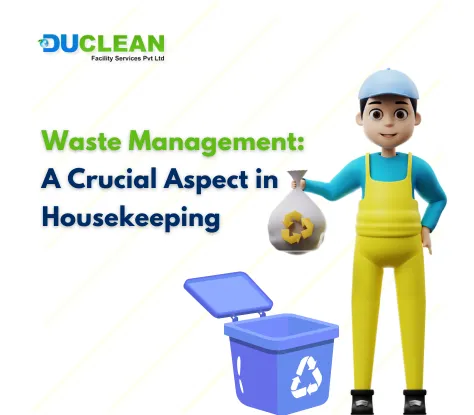Waste management is one of the most overlooked aspects of housekeeping. However, it is the most important aspect. Without proper waste management and waste disposal processes housekeeping is incomplete and ineffective. Effective and professional waste management is crucial to avoid any contingencies at residential properties, commercial properties, hotels, and hospitals. It also caters to a risk-free and prosperous environment for everyone.
In this post, let us look at the importance and means of waste management that can lead to a safer environment.
Building Housekeeping
Whether it is a residential or commercial building the housekeeping service has to make sure that the waste of the property has been disposed of in the right way. Making sure to segregate the biodegradable and non-biodegradable waste and regular maintenance are some of the key factors that signify proper waste management. Let’s look at some practices that will help you to keep a check on the building’s housekeeping.
- Routine Cleaning
Routine cleaning of the building surroundings, corridors, lobbies, and restrooms by sweeping, mopping, dusting, and sanitization is the crucial process for maintaining cleanliness.
- Maintenance Checks
Systematic checks of plumbing lines, electrical systems, ventilation systems, and other facilities should be done to ensure that all facilities are in good working condition which contributes to less waste generation and boost cleanliness.
- Pest Control
Pest control is a mandatory step to keep check on infections and diseases. Exterminating the harmful bacteria and insects from the building premises will ensure the healthy life of the residents and visitors as well.
- Safety Measures
Taking adequate safety measures by ensuring emergency exit paths with proper signage, regular fire drills, and maintaining fire safety equipment will uplift the overall building maintenance.
- Building Exterior Maintenance
Maintaining the building’s exterior is also an important part of waste management. It contributes to maintaining the hygiene and aesthetics of the building.
Waste Management
The next step is to have an accurate waste management plan. It is the process that ensures the disposal of the waste. Let’s look at some key points that everyone should remember during the waste management process.
- Segregation at Source
The process of the segregation of waste at the source ensures environmental sustainability. Segregating the recyclables, organics, and general waste at the source reduces the risk of any damage to the environment and prevents any contingencies.
- Collection and Transportation
After the proper segregation, it needs to be collected and transported to the trenching ground or should be sent to processing plants. This process ensures that waste is disposed of accordingly leaving no residue behind.
- Recycling
Recycling waste material is the most sustainable practice that leads to the reduction of waste and it is very pivotal for everybody to encourage this practice as much as possible.
- Composting
Organic and kitchen waste from residential and commercial buildings can be turned into nutrient-rich composting for gardens. This process encourages environmental sustainability practices to reduce the waste at the source.
- Hazardous Waste
Taking care of the e-waste, medical waste, and chemicals is critical. It is necessary to dispose of hazardous waste according to the safety norms and guidelines to avoid any contamination.
- Public Awareness and Education
Educating and spreading awareness regarding waste management and disposal is as important as practicing environmental sustainability. An aware and educated public will uphold the standards of waste management.
Conclusion
In summary, waste management is the cornerstone of effective housekeeping, ensuring cleanliness and environmental responsibility. Routine cleaning, maintenance checks, and safety measures maintain standards while minimizing waste generation. A comprehensive waste management plan, including segregation, recycling, and hazardous waste disposal, further strengthens these efforts. Public awareness and education play crucial roles in fostering a culture of environmental responsibility. By prioritizing waste management, we create a cleaner, safer, and more sustainable future for all.

